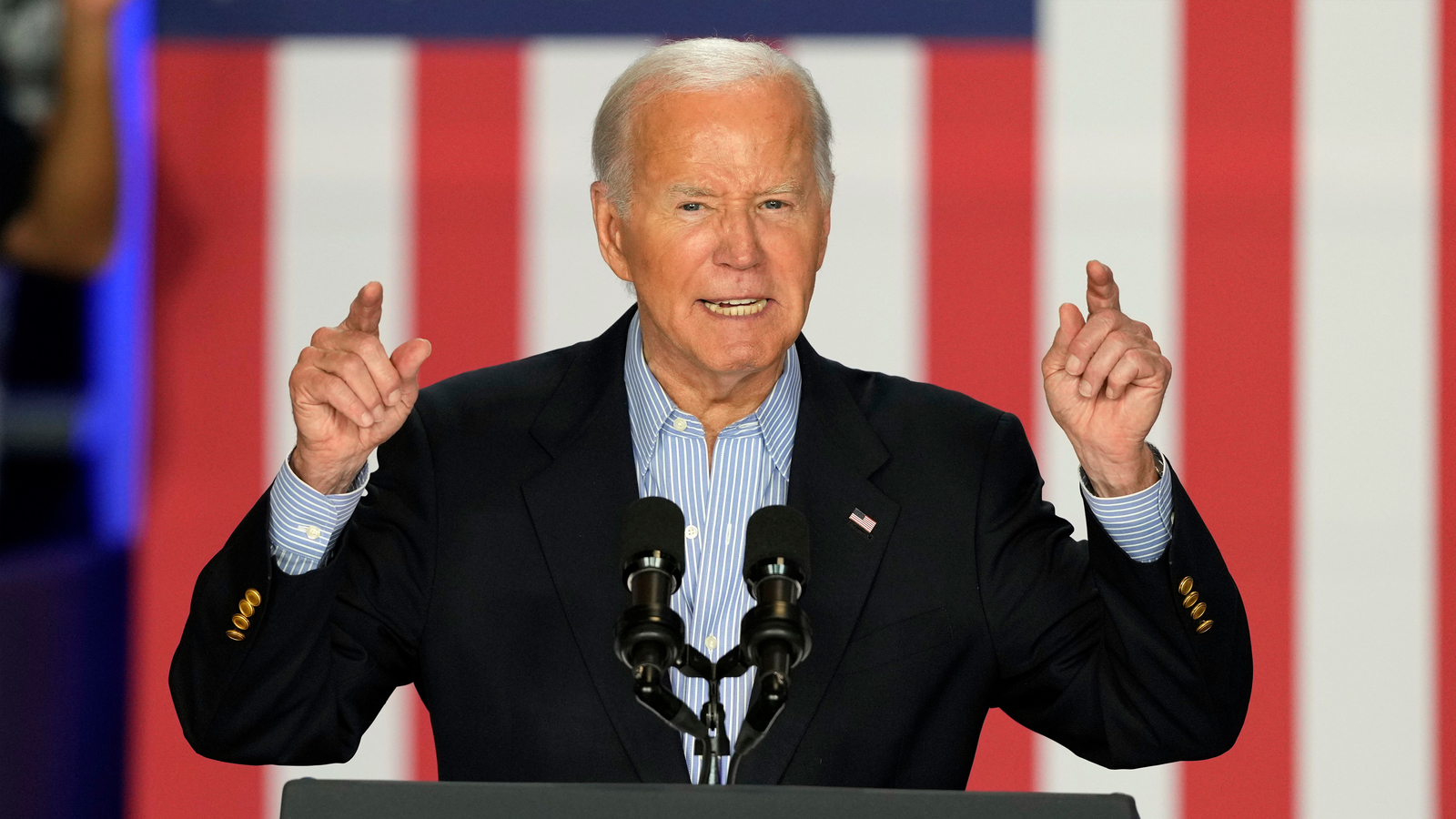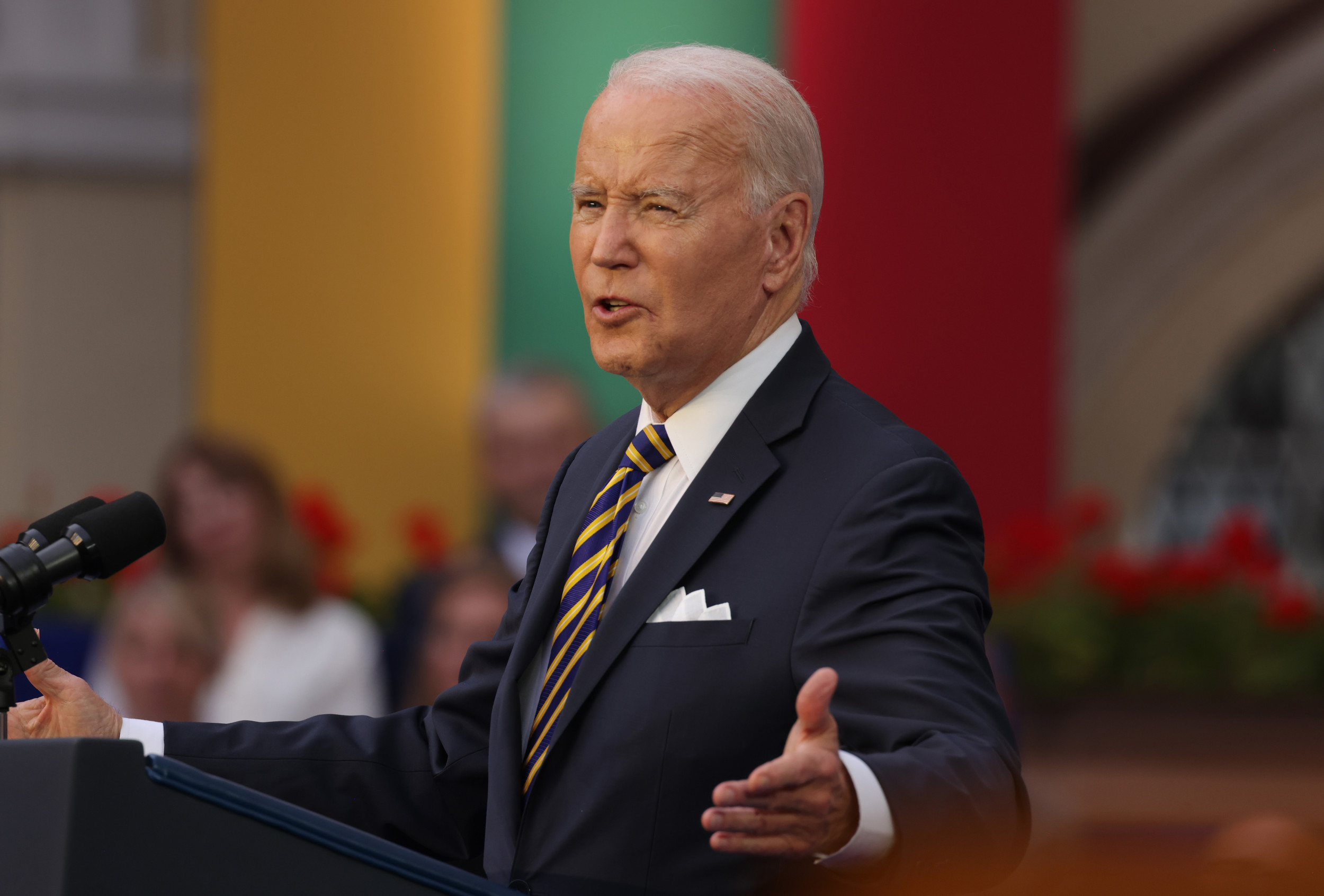Biden’s Commitment to NATO

Biden nato speech – President Biden has repeatedly emphasized the importance of NATO, pledging to strengthen the alliance and its collective defense. This commitment is rooted in his belief that NATO is a vital transatlantic partnership that ensures the security and stability of Europe and North America.
In his address to NATO, President Biden emphasized the importance of unity in the face of global challenges. While many praised his speech, some criticized it for lacking specifics. In a recent interview with George Stephanopoulos , Biden defended his speech, saying that he had intentionally avoided details to allow for flexibility in the future.
Biden’s Demonstrated Support
Biden has demonstrated his commitment to NATO through various actions, including:
- Increasing U.S. troop presence in Europe following Russia’s invasion of Ukraine.
- Providing military assistance to Ukraine, including anti-aircraft systems and other defensive weapons.
- Strengthening NATO’s eastern flank by deploying additional troops and equipment to Poland and other Baltic states.
- Participating in NATO exercises and operations, such as the Defender Europe 2021 and Cold Response 2022 exercises.
- Working with NATO allies to develop a new Strategic Concept that will guide the alliance’s future.
Significance of Biden’s Support
Biden’s support for NATO is particularly significant in the face of Russian aggression. Russia’s invasion of Ukraine has highlighted the importance of a strong and united NATO, and Biden’s commitment to the alliance has helped to deter further Russian aggression.
NATO’s Role in Global Security

NATO’s mission and purpose have evolved since the end of the Cold War. In the post-Cold War era, NATO has focused on promoting stability and security in Europe and beyond. The alliance has played a key role in major global conflicts and peacekeeping operations, including the Balkans, Afghanistan, and Libya.
Challenges and Opportunities
NATO faces a number of challenges in the 21st century. These challenges include the rise of new threats, such as terrorism and cyberwarfare, the changing security landscape in Europe, and the need to maintain unity and cohesion among member states.
Despite these challenges, NATO remains a vital alliance for global security. The alliance provides a forum for consultation and cooperation among member states, and it plays a key role in deterring aggression and promoting stability.
Transatlantic Cooperation and the Future of NATO: Biden Nato Speech
Transatlantic cooperation is the cornerstone of NATO’s strength and unity. The alliance between the United States and its European allies has been the bedrock of peace and stability in Europe for over 70 years.
The key areas of cooperation between the US and its NATO allies include:
- Defense and security: NATO members cooperate to deter and defend against threats to their collective security, including terrorism, cyberattacks, and conventional military aggression.
- Political cooperation: NATO members consult and coordinate on a wide range of political issues, including foreign policy, arms control, and human rights.
- Economic cooperation: NATO members work together to promote economic growth and stability in the Euro-Atlantic region.
Challenges to Transatlantic Cooperation, Biden nato speech
Transatlantic cooperation is not without its challenges. One challenge is the rise of nationalism and populism in some NATO member states. These movements have led to calls for a reduction in defense spending and a more isolationist foreign policy.
Another challenge is the growing divergence of interests between the US and its European allies. The US has increasingly focused on the Asia-Pacific region, while its European allies have been more focused on threats from Russia.
Solutions to Strengthen the Alliance
There are a number of things that can be done to strengthen the transatlantic alliance. One is to increase defense spending. NATO members have agreed to spend 2% of their GDP on defense, but many members are not currently meeting this goal.
Another is to improve political coordination. NATO members need to consult more closely on a wide range of issues, including foreign policy, arms control, and human rights.
Finally, NATO members need to work together to promote economic growth and stability in the Euro-Atlantic region. This will help to reduce the appeal of nationalism and populism and strengthen the alliance’s ability to meet future challenges.
In his speech to NATO, President Biden reaffirmed the alliance’s commitment to collective defense. He also emphasized the importance of unity in the face of Russian aggression. Senator Marco Rubio warned that Russia’s invasion of Ukraine could be a prelude to further aggression against NATO members.
He called for the alliance to strengthen its defenses and deter Russian aggression.